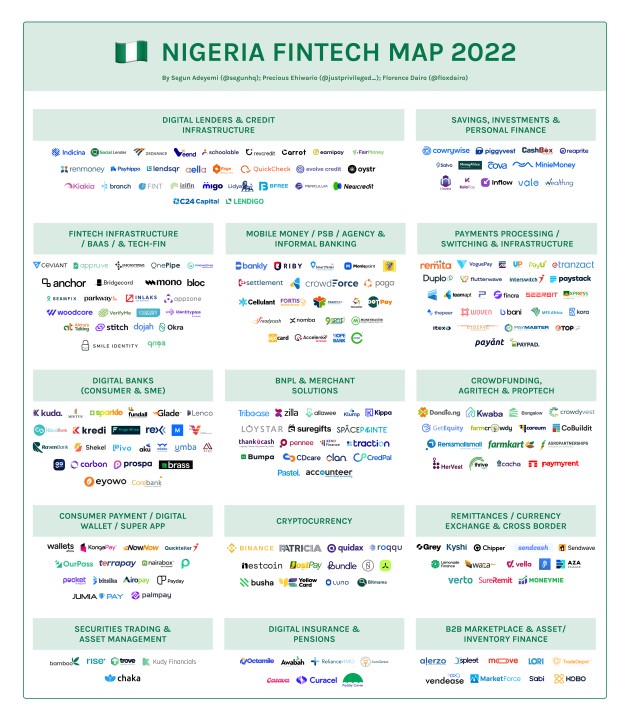As the CBN has recently approved the operational guidelines for Open banking in Nigeria, Financial Institutions, and Fintechs require direction on their roles in this new digital ecosystem. Earlier this month, we indicated a tentative order of events that the CBN might follow in rolling out Open Banking operationally. As we await technical implementation guidance, this article aims to present Nigerian Fintech’s roles in the Open Banking Ecosystem.
Nigeria’s Open Banking Standard outlines three prominent roles that Institutions may play in its ecosystem, namely.
- API Providers (APs)
- API Consumers (ACs)
- Consumers
APs represent the core of the ecosystem and are typically account-holding Financial institutions such as Commercial or Microfinance Banks. They also include non-traditional financial institutions such as Mobile Money Operators. ACs represent the service side of the ecosystem, responsible for delivering services directly or indirectly to consumers in both financial and non-financial value propositions. Finally, Customers represent the End-Users who are required to consent to release their data solely for the use of the service provided by the ACs.
Opportunities and Fortunes
Within the greater startup ecosystem in Nigeria, the fintech sector employs the most people and receives 70% of all startup funding. By 2025, fintech sales are anticipated to increase by 8x to $30 billion. Open banking offers Fintechs a window of opportunity to take advantage to meet their challenges and provides top-tier products to Nigerian customers. Here are some benefits that Open Banking brings to Nigerian Fintechs:
- Increased reach and capabilities
- Increased competition and innovation
- Improved financial inclusion
- Greater efficiency
- Improved customer experience
With over 250 Fintech Startups in Nigeria, it is clear that Open Banking can serve the strategic objectives of many sub-verticals ranging from Lending to Personal Finance and from Agritech to Digital Insurance.
Spotlight read: Open Banking in Nigeria: How it will Increase Financial Access for MSMEs
Nigerian Fintechs as Catalysts for Financial Inclusion and Innovation
With only 27% of Nigerians being financially healthy, Financial inclusion continues to be a challenge in Nigeria, but Fintechs are pivotal in addressing it. Through their technology-driven approach, Nigerian Fintechs are making financial services accessible to the unbanked and underbanked populations. By leveraging mobile technology and innovative payment solutions, Fintechs are bridging the gap and extending financial services to previously underserved communities. This accessibility boosts participation in the formal economy, driving growth and reducing inequality.
These Fintechs are also at the forefront of driving innovation and competition within the financial industry. These agile and tech-driven companies leverage digital technologies to offer innovative financial products and services. For instance, companies like Interswitch, Paga, OnePipe, and Lendsqr have transformed the landscape with their innovative banking solutions, digital payment platforms, and microloan services. These innovations enhance convenience, accessibility, and efficiency for individuals and businesses. Open Banking represents an additional source of innovation for these Fintechs to adopt in the service of their consumers.
Account Information, Payment Initiation, and more…
Traditionally, the role of API Consumers typically fall under one of two categories below:
- Account Information: API Consumers can retrieve consumer account details to provide additional value-added services securely.
- Payment Initiation: this allows consumers to make payments directly from their bank accounts after securely authenticating and authorizing the connection between their financial institution and their Service Provider.
Nigerian Fintechs can extend past these use cases to provide a wide range of innovative financial solutions that leverage Open Banking Capabilities. These include services such as personalized financial management tools that offer budgeting, expense tracking, and savings recommendations. Fintechs can also facilitate seamless integration of financial services with other sectors, such as e-commerce, enabling secure and convenient transactions. Additionally, Fintechs can enhance value by using alternative data for credit scoring and lending, broadening credit access for individuals and small businesses. These services show Nigerian fintechs’ potential to significantly impact the Open Banking Ecosystem.
Spotlight read: 4 innovations driven by the regulations surrounding open banking
The transformative potential of Nigerian fintechs in the open banking era
Nigerian Fintechs are poised to play a transformative role within the Open Banking ecosystem, ushering in an era of innovation and financial inclusion. Their technological advancements, diverse financial solutions, and reach to both banked and unbanked populations have significant potential for Nigeria’s economy. As fintech evolves, collaboration between regulators, traditional financial institutions, and fintechs is crucial for a supportive and inclusive Open Banking environment.
In summary, Nigerian financial institutions and fintechs, through Open Banking, can transform the financial landscape by enhancing access to services, boosting economic growth, and driving inclusivity and prosperity.
